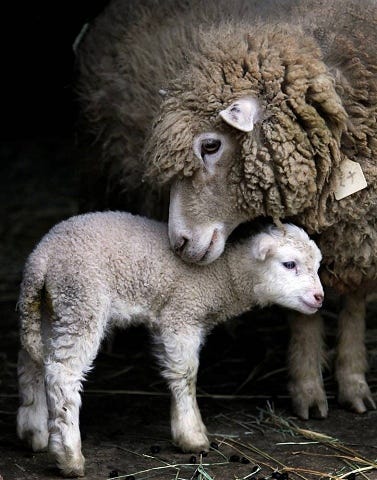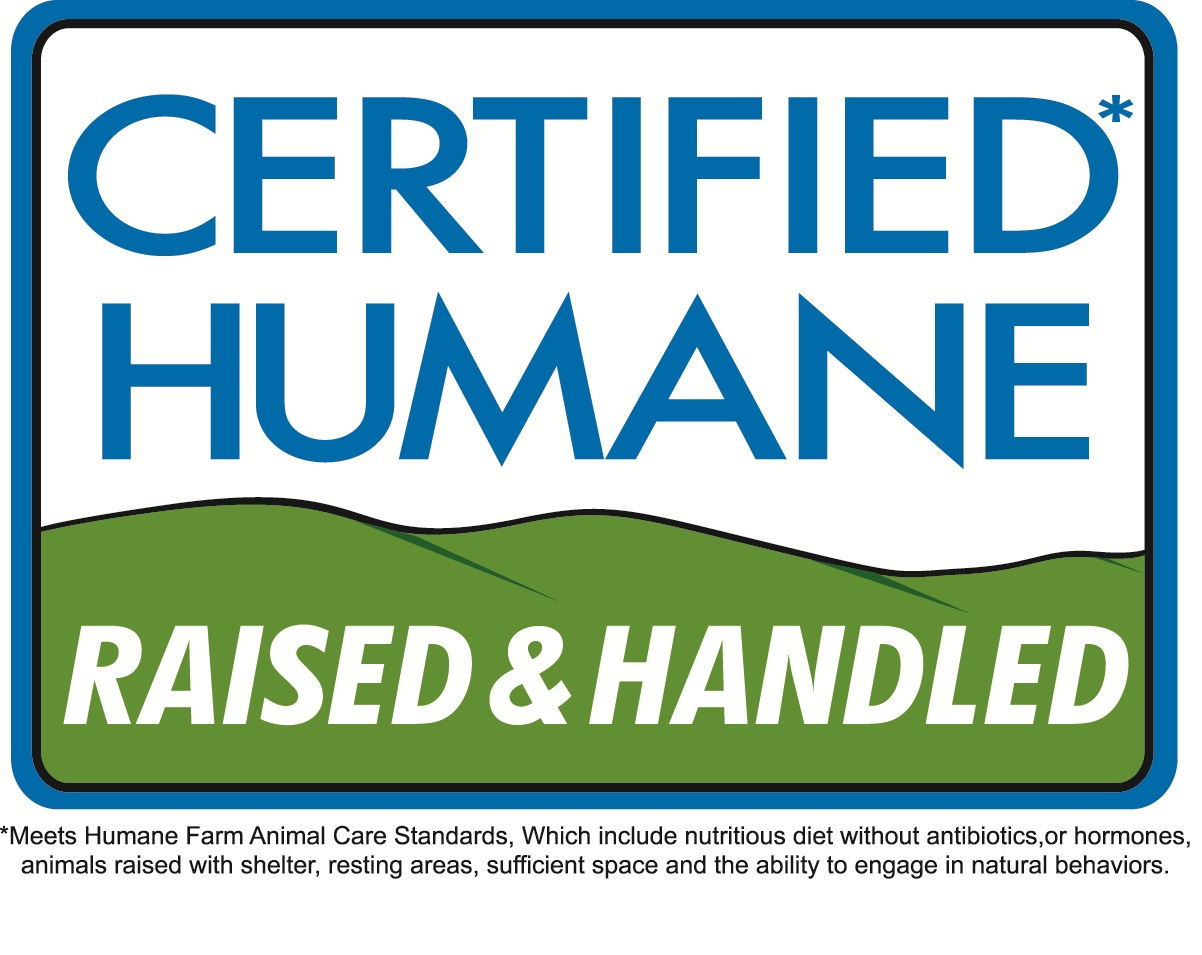[I posted this before, but Substack didn’t send out notifications for some reason, so I am trying again. —mh]
Here, I continue my discussion of ethical vegetarianism.*
[ *Based on: “Dialogues on Ethical Vegetarianism,” Between the Species 22 (2018): 20-135. Book: https://www.amazon.com/dp/1138328294/. ]
Recap
In the previous post, I mentioned this basic, simple reasoning:
Suffering is, in general, bad.
Through factory farming, we are causing, every few years, a quantity of suffering that is comparable to all the human suffering in all of history.
So this is extremely bad, bad enough to vastly outweigh the benefits to us.
So we as a society ought to stop doing this.
Also, in general, one ought not to pay people for doing extremely bad things.
Therefore, each of us should stop buying these products.
I discussed several reasons that people sometimes give for why it’s okay to torture and kill other animals for our pleasure. All these reasons are unconvincing, most of them laughably so.
Other Comments & Questions
Q: Do animals have rights, and if so, do they have the same rights as humans?
A: I don’t know, because I don’t know why we have rights in the first place, so I don’t know whether whatever that reason is applies to animals.
Some ethicists think that there are no such things as rights, for anyone. These ethicists, however, don’t think that it’s fine to torture people for fun. They just think the wrongness of recreational torture is explained by some other moral principle, not a principle of “rights”. E.g., maybe it’s wrong because you’re obligated to maximize utility. The absence of rights would maybe make it okay to harm a person in order to produce a greater benefit for others; but everyone agrees that it’s wrong to harm a person a lot in order to produce a much smaller benefit for yourself.
Similarly, if animals lack rights, it’s still wrong to torture them for the sake of comparatively tiny benefits for yourself. So factory farming is still wrong.
Q: What about eggs & dairy?
A: Most eggs & dairy are produced through factory farming, so that is also bad. However, some animals are insentient, such as scallops & clams, so they’re fair game. Insects are probably also insentient, so, e.g., silk and honey products are probably fine.
Q: What about “free range” animal products?
A: Most “free range” labels don’t mean much because the standards are set by the industry. However, some products are certified as humanely produced by animal welfare organizations. E.g., you can look for this label, which appears on some products you see at Whole Foods:
If animals lack rights, then I think it’s permissible to use animal products that are produced humanely.
If animals have rights, then I think it would be impermissible to kill them for food even if they are raised and killed humanely. (But I think eggs & dairy would still be permissible.)
If you’re not sure whether animals have rights, then it makes sense to err on the side of caution by not buying meat, even if humanely raised.
Moral Uncertainty
That brings up the question of moral uncertainty. In general, how should you behave if you’re not sure what morality demands? Typically, you should err on the side of caution by avoiding things that even might be morally wrong, at least if there isn’t a strong reason to do them.
In this case, if you think there is even a 1% chance that animal suffering is even 1% as bad as human suffering, then the expected amount of moral evil caused by factory farming is about equal to that of a program that tortured and killed 7.4 million people every year. If there were such a program, it would uncontroversially be the most horrible thing humans had ever done, and stopping this program would be the top priority for people trying to improve the world.
It would be hard to argue that there isn’t even a 1% chance that animal suffering matters even 1% as much as human suffering. (Note that some ethicists think animal suffering matters equally as human suffering of the same intensity, and in fact the arguments against this are generally pathetic; see the previous post.) If you claim that you’re certain that animal suffering doesn’t matter at all, you’re an irrational dogmatist.
So it’s hard to see how stopping factory farming could not be the top priority for people trying to improve the world.
Q: Is it morally wrong for lions to eat gazelles?
Lions probably do not have free will, nor an ability to understand morality or govern their decisions by moral reasons, which is why no action by a lion is wrong. Even if a lion eats a human baby, that’s not wrong on the part of the lion. It doesn’t follow from this, of course, that it’s okay for you to eat a human baby. Presumably, you can understand morality and govern your actions accordingly, so it’s wrong for you to refuse to do so.
Q: Should we stop predators from killing other animals?
This appears to be impossible, and even if it could be done, it would completely disrupt the ecology. But if there were a way to do it without much cost, without disrupting the ecology, etc., then it would be a great thing to do.
Q: It would be okay to eat meat if necessary to save your life. Therefore, it’s not true to say “eating meat is wrong”.
Compare: “It is permissible to kill a person if doing so is necessary to save your own life (e.g., if that person is otherwise going to kill you). Therefore, it’s false to say that ‘killing people is wrong’.”
That’s dumb. Obviously, killing people is wrong in normal circumstances, including (almost certainly) your current actual circumstances. That is why it is appropriate to say “killing people is wrong”. You certainly wouldn’t say, “Killing people isn’t wrong”, unless you’re evil. Similarly, eating meat is wrong in normal circumstances, including (almost certainly) your current actual circumstances.
Q: What about lab grown meat?
Obviously, lab grown meat doesn’t feel pain or suffering, so there’s in general no ethical problem with it.
Q: What about animal experimentation?
If animals have rights, then animal experimentation would probably be wrong. If they don’t have rights, then animal experimentation would be permissible if (and only if) the expected benefits (to us) outweigh the expected harms (to the animals).
Mylan Engel makes a strong case that most animal experiments have little to no benefit, here: https://academic.oup.com/book/39388/chapter-abstract/339071508. In that case, they’re impermissible.
Q: Why are only 5% of Americans vegetarian?
It’s not because it’s hard to figure out whether meat-eating is wrong. It’s not because no one has articulated the case clearly enough. The case is simple, obvious, and has been articulated very clearly, many times. Indeed, it is difficult to find any ethicists who disagree.
Most people are (in some sense) unaware of all this, but the reason they are unaware of it is that they do not want to be aware; that is, they refuse to listen to arguments for vegetarianism, refuse to think about it, refuse to look at the videos from factory farms. The reason for this is that they want to continue doing whatever is most enjoyable for them, without having to admit that they’re immoral.
If you can get a captive audience, though, it’s easy to convince people (at least college students) that meat-eating is wrong. Most will then just decide to continue being immoral. Why?
Basically, most humans have next to zero genuine moral motivation. What looks like conscience in humans is mostly just deference to social norms. I.e., they don’t care if their behavior is morally wrong unless it is also socially disapproved. Most people will also help to murder other humans if doing so is socially approved.
Q: What should we do?
In addition to abstaining from factory farm products, we should try to spread awareness of their evil, i.e., tell people about the wrongness of buying meat. If enough people do this, it may eventually create social pressure to stop doing the worst thing that humans have ever done.
But by the way, if you do this, you should expect many other humans to react like assholes, e.g., to start “joking” about how “delicious” bacon is, or to criticize you for being too “preachy”. This is because most humans are so utterly corrupt that, when informed of their own immorality, their natural reaction is not to blame themselves for their own wrongful actions; their natural reaction is to blame you for making them aware of it. To them, the problem isn’t that they’re doing something horrible; the problem is that they’re being forced to think about it.








If social opprobrium continues to be too limited for widespread change there is another solution in substitution: lab grown meat if it ever becomes economical and vegetable protein. Impossible Sausage and Beyond Cookout Classic burgers are so good I prefer them over animal meat. They currently cost more, but these companies have only been in business for eight and twelve years respectively. There is plenty of room for competition and innovation in this space to drive down costs and capture market share.
It's wildly more popular to share something that improves the lives of the people you care about rather than convincing them to diminish their lives for the benefit of others. Meat substitutes are great these days, spread the word!
>Q: Should we stop predators from killing other animals? This appears to be impossible, and even if it could be done, it would completely disrupt the ecology.
Michael is a vegetarian, so it’s understandable that he hasn’t interacted with the hunting community much. But this is wrong.
First, controlling predator populations is a prime goal of many wildlife divisions, and many hunters enjoy predator hunting. While we likely wouldn’t be able to get rid of some predators (e.g. coyotes), which already have bounties on them in many states, we totally could eradicate bear or cougar populations if it were legal.
Second, “the ecology” isn’t a thing. All wildlife is managed. The concept of “disrupting” this is simply confused. Indeed, what Michael likely considers to be the wildlife of Colorado, only exists because of Colorado’s management of the land, specifically in the issuance of hunting tags and permits.
Indeed, if Michael got his way, and everyone turned Vegan, this would cause a significant “disruption” to “the ecology”.